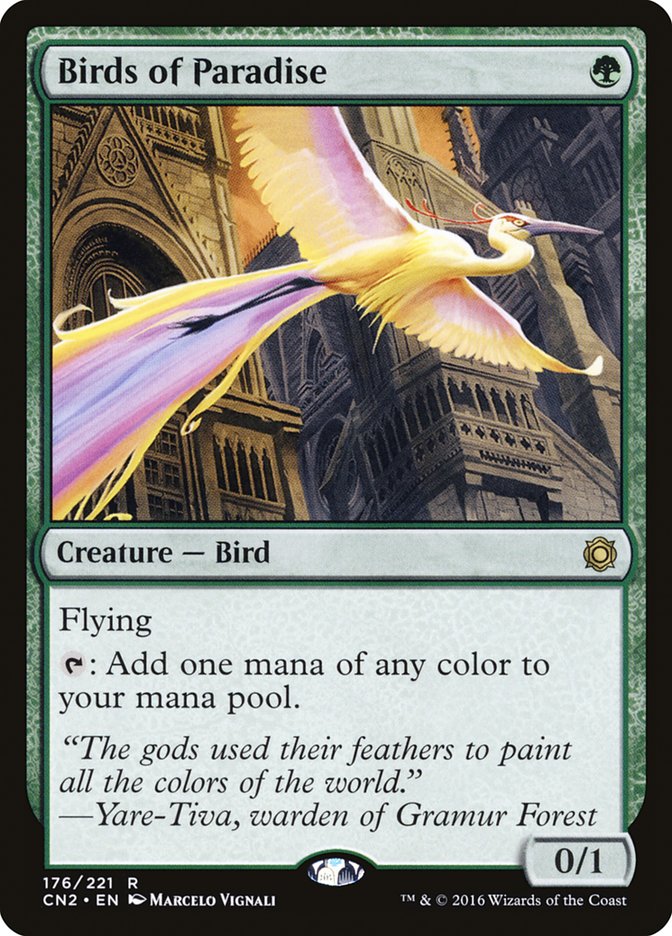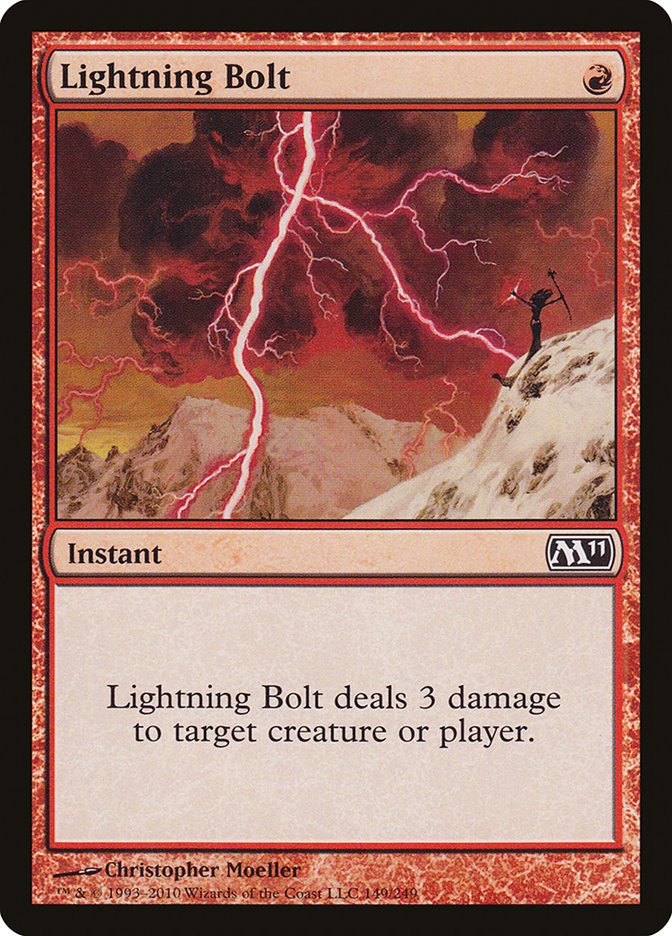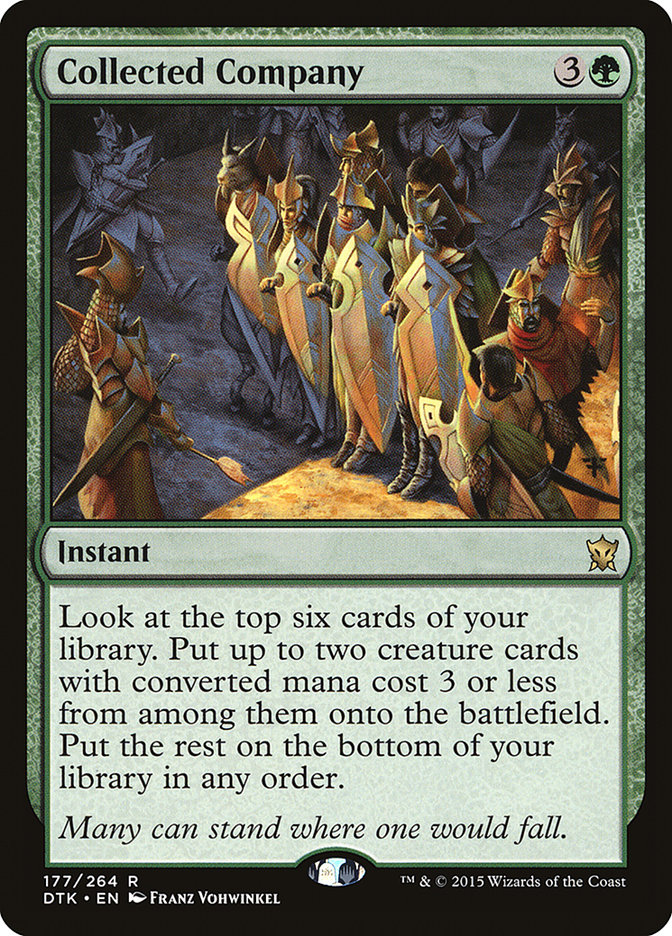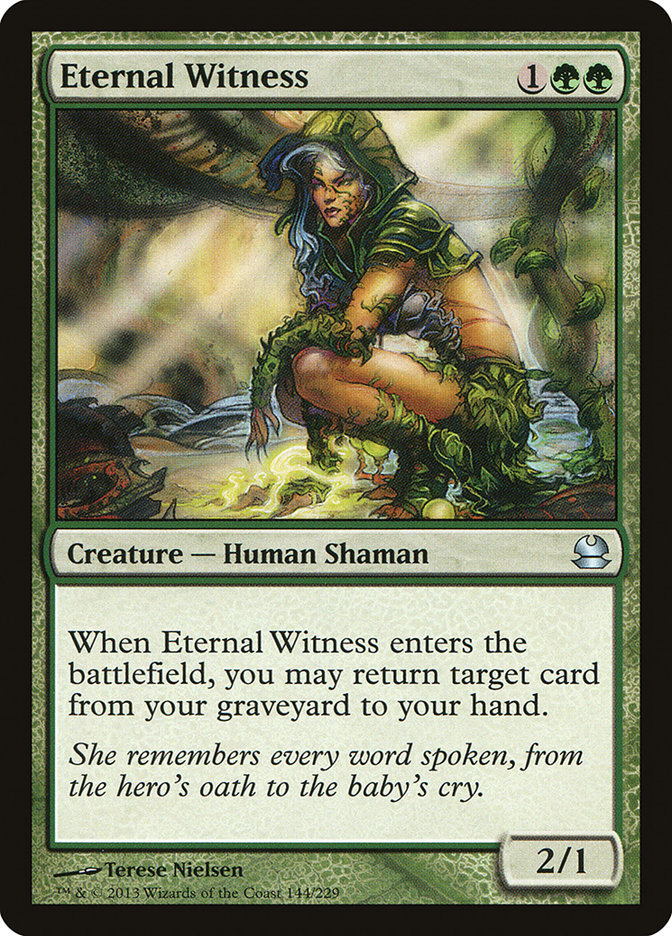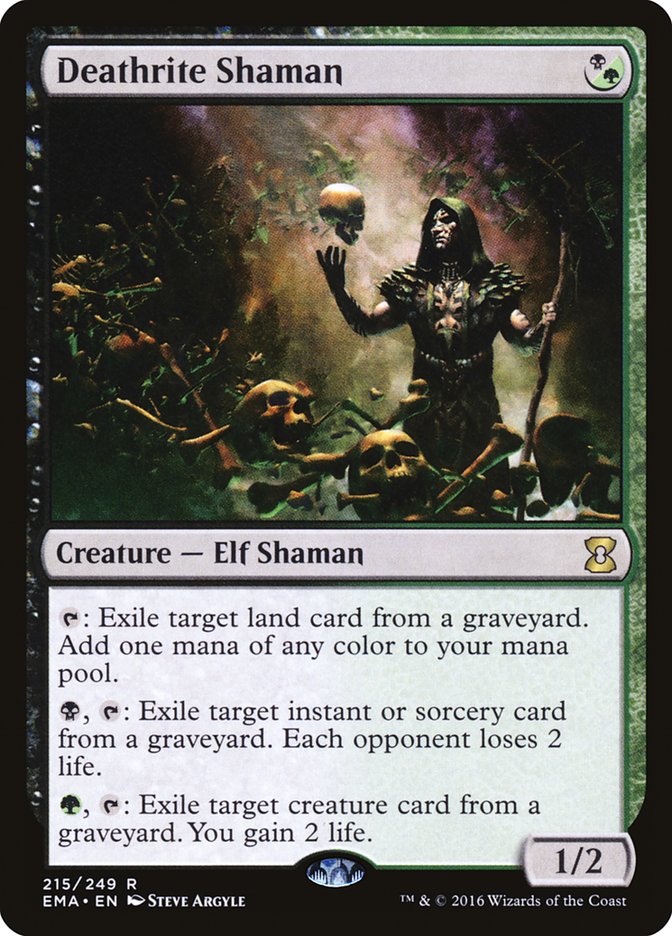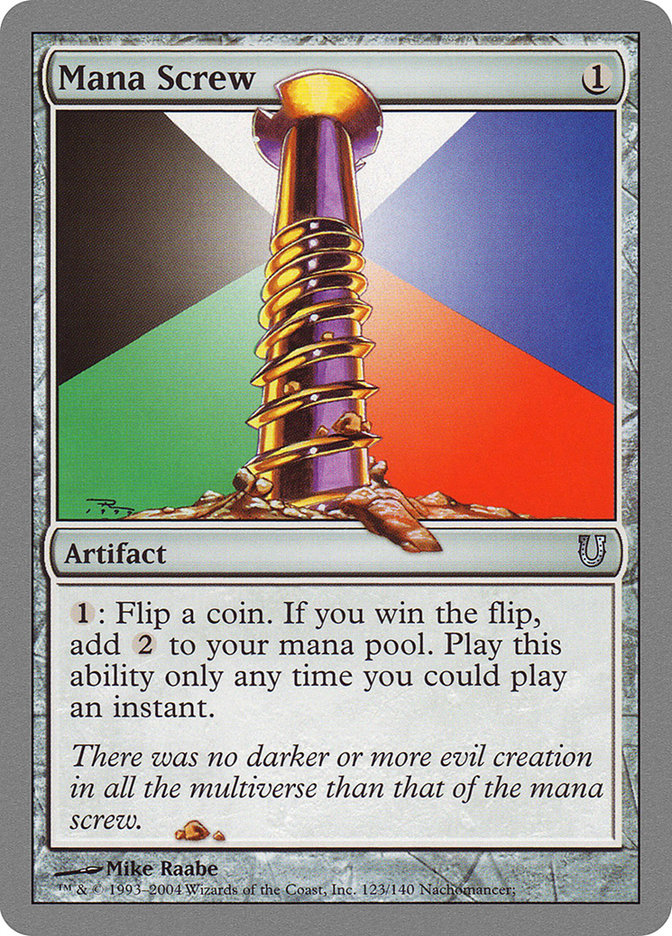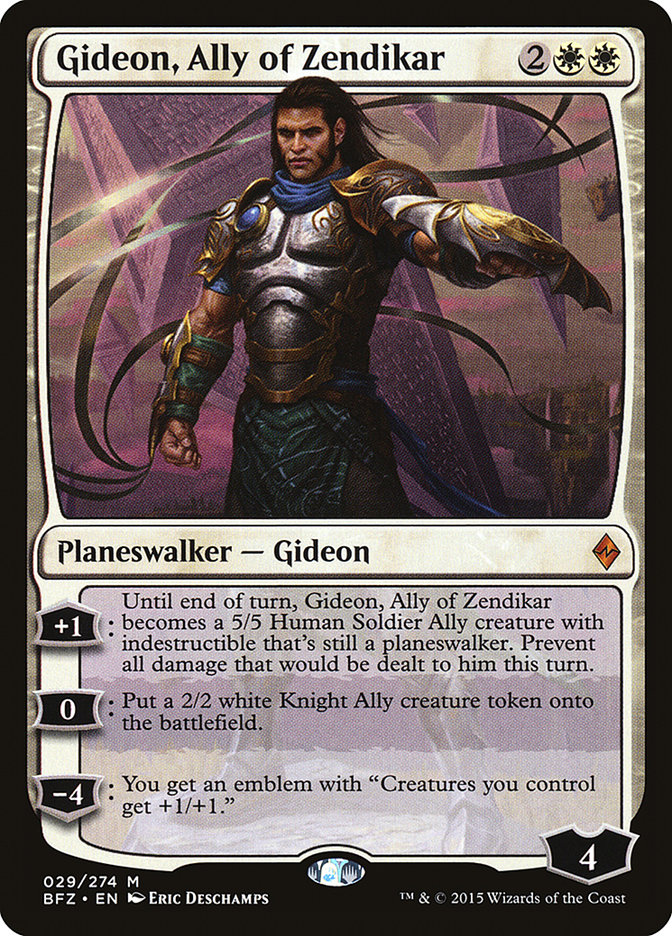No.
“Screw beats flood.”
That just isn’t…
“Never concede until you’re dead.”
…..except for the situations in which it is advantageous to concede.
Pack mentality is rough, but it can be inescapable in a game that’s a community-driven as Magic. Part of why we play so many games is to learn what in-game decisions are right and which ones are wrong. In a lot of cases, we do this through compartmentalization. This means that we apply the results from a small sample size across a large number of scenarios.
In some cases, this is totally reasonable. We only have a finite amount of time to prepare for a tournament, and need to make the most of it. The issue is that people will try to take other people’s results from a small sample size and use them as a template for every related instance. It leads to a stifling of growth and incorrect information being disseminated as fact, with very few people willing to fight it. Telling the person at the store who’s been playing the longest that one or more of these “tried and true” sayings is incorrect is almost sacrilege.
That issue is that many of these ideas have aged poorly. Magic has changed in the last twenty years. As the power levels of cards has increased and the importance of tempo has become more apparent, fewer and fewer of these dictums hold water.
Always Bolt the Bird
Kicking off the list of cliches, “Always Bolt the Bird” is not only misinformed, it’s self-destructive.
For those who haven’t heard the phrase before, “Bolting the Bird” is a phrase that basically says that one should use a removal spell to kill the opponent’s mana creature before they have the opportunity to use it. While there are times where this is reasonable, this is primarily the wrong thing to do against decks that are playing mana creatures.
Look at the most popular Birds of Paradise deck right now:
Creatures (30)
- 4 Birds of Paradise
- 4 Eternal Witness
- 4 Devoted Druid
- 4 Kitchen Finks
- 3 Noble Hierarch
- 1 Viscera Seer
- 1 Scavenging Ooze
- 1 Fiend Hunter
- 2 Duskwatch Recruiter
- 2 Walking Ballista
- 4 Vizier of Remedies
Lands (22)
Spells (8)

Assuming you are on the draw against this deck and they lead on Temple Garden into Birds of Paradise, what does Lightning Bolt actually do?
Counters Company has a ton of redundancy and more creatures than any player is going to have removal spells. This means that any player planning to use Lightning Bolt as a removal spell will have to prioritize what they’re using the spell to destroy.
In these styles of decks, Birds of Paradise is usually one of the more replaceable cards in the deck. Assume you’re playing a Death’s Shadow deck against the aforementioned Counters Company list.
Creatures (16)
Lands (19)
Spells (25)

In a game with this deck, one can expect to cast between three and five removal spells. Those spells have to be impactful and actually be worth an entire card. When playing against cards that create redundancy in the form of Chord of Calling, Collected Company, and Eternal Witness, one can’t be expected to grind out a longer game against the Company deck.
The power level of Magic cards has been increasing for years, and we’re getting to a point where Birds of Paradise is hardly worth a card. Against a lot of the grindier fair decks, Collected Company archetypes will sideboard out a chunk of their mana creatures in order to raise their average card quality. When Birds of Paradise was first printed, it was being used to crank out larger creatures for more than just a couple of mana. Now? Counters Company hardly misses a beat if it loses its first-turn mana creature.
This means that rather than firing off Lightning Bolt on Birds of Paradise because it’s the first target (and because Vinne the Veteran Magic Player said that you always Bolt the Bird), removal spells need to be rationed for the more important cards to answer. Picking off a Birds of Paradise on the first turn looks like a really bone-headed move if the opponent follows up with Devoted Druid.
“Okay, but Emma, there have to be times where using a removal spell on my opponent’s mana creature is correct. Otherwise this wouldn’t have become such a popular theory in the first place!”
There are cases where it is correct to hit the creature! They’re just less common than those where it is correct.
Creatures (27)
- 1 Birds of Paradise
- 2 Eternal Witness
- 4 Noble Hierarch
- 4 Drowner of Hope
- 1 Eldrazi Skyspawner
- 4 Eldrazi Displacer
- 4 Reality Smasher
- 4 Thought-Knot Seer
- 3 Matter Reshaper
Lands (23)
Spells (10)

Against decks that don’t have a healthy number of targets for Lightning Bolt, cashing in the Bolt sooner rather than later is a reasonable line to take. Outside of Eldrazi Displacer, this deck doesn’t really have very many creatures that die to a Lightning Bolt without two-for-one’ing yourself, so using the Lightning Bolt has a one-for-one is better to do while it is still relevant.
The other instance where it is likely correct to kill the opponent’s mana creature is when it can knock them far off curve.
Creatures (25)
- 1 Scavenging Ooze
- 1 Ghor-Clan Rampager
- 4 Elvish Mystic
- 4 Polukranos, World Eater
- 4 Sylvan Caryatid
- 4 Stormbreath Dragon
- 2 Reaper of the Wilds
- 1 Xenagos, God of Revels
- 4 Courser of Kruphix
Planeswalkers (8)
Lands (23)
Spells (4)

G/R/x Monsters was a deck from Theros-era Standard that took advantage of the eight Standard-legal mana creatures to crank out four- and five-drop mythic rare creatures until the opponent died. Killing the opponent’s Elvish Mystic on the first turn was generally fantastic because the deck didn’t have a high number of two-drops, and in a lot of cases it would act as a pseudo-Time Walk against them.
In Legacy, Deathrite Shaman poses an interesting set of questions that impact whether or not it should be dealt with on the first turn, and it varies from archetype to archetype.
Are you playing a Reanimator deck that has trouble winning through an untapped Deathrite Shaman? It’s probably better to kill it before it loses summoning sickness.
Are you playing a Delver of Secrets deck? It will generally behoove you to develop your threat before you start trying to answer what the opponent is doing.
Is the opponent playing a Shardless Sultai-style deck that has more three-mana cards than two-mana cards? It might be correct to go ahead and answer the Deathrite Shaman, depending on how weak your hand is to Liliana of the Veil and Leovold, Emissary of Trest.
All of these situations are about context, and knowing what kind of deck the opponent is playing will do a world of good in terms of determining how important their early mana creatures can be.
Never Concede Until You’re Dead
Conceding can be advantageous. Seriously, hear me out.
Imagine you’re playing a slower deck. We’ll use Lantern Control as an example:
Lands (18)
Spells (42)

With this deck, it can take a long time to lose, despite the writing be on the wall.
I recently played the deck at an SCG Open in Baltimore and had an odd situation in which, despite not being dead, I should have conceded much earlier.
I had a copy of Ensnaring Bridge on the battlefield as well as two mill rocks with a Lantern of Insight. The opponent was playing a version of the Coralhelm Combo deck and had both Tireless Tracker and Knight of the Reliquary on the battlefield.
Creatures (27)
- 3 Birds of Paradise
- 4 Noble Hierarch
- 4 Knight of the Reliquary
- 2 Qasali Pridemage
- 3 Scavenging Ooze
- 3 Voice of Resurgence
- 2 Tireless Tracker
- 4 Spell Queller
- 2 Selfless Spirit
Lands (23)
Spells (10)

Because of a Surgical Extraction, I knew that my opponent still had the following cards that “mattered” in their library:
Because of the Clues they were generating with Tireless Tracker in combination with the number of shuffles they were getting with Knight of the Reliquary, they were getting more looks in their library than I could possibly manipulate cards. Despite it taking roughly 25 minutes for me to lose the game, I tried to play it through, playing to the off-chance that the opponent screwed something up or I got lucky and just so happened to mill through their threats without them being able to assemble anything that could kill me.
This was wrong.
The reason? After that game was over, there were eight minutes left on the clock. For a Lantern Control deck to win two games. It just isn’t realistic. This doesn’t just apply to slower decks, either. Aggressive creature-based decks are going to take a long time to win in a mirror match. The battlefield is going to get cluttered, and players are going to take their time when assessing it. In short, games are going to take a while.
If the odds that you’ll end up winning a long game are relatively slim, and it looks like the match is going to take a long time, it is oftentimes correct to concede.
Magic is a resource management game, and while people will regularly talk about managing life, cards, and battlefield position, mentioning the time on the clock isn’t touched on nearly as frequently. It is much better to try to win two games in time after losing the first one instead of losing a single close game and have the second game end in a draw.
Screw Beats Flood
“Screw beats flood” is a saying that refers to both players having mana problems, and who is favored when players have different issues.
Long, long ago, when Magic was still a newer game, cards weren’t as powerful as they were now. Creatures were much weaker than they are today, and it took longer for a game of Magic to actually conclude. This is what made players assume that somebody who was mana screwed would generally be able to beat somebody who was mana flooded.
The mana flooded player was assumed to not have the proper resources to close out a game before the mana screwed player could draw a land or two to stabilize. From that point, the player who was previously mana screwed would have more non-land resources to combat whatever the mana flooded player was trying to do, thus resulting in the mana flooded player’s defeat.
This isn’t how it works any more, and the reasons are twofold.
The first reason has a lot to do with the inevitable power creep that comes with an aging game. The word “aging” implies that there is something wrong with Magic growing older, but that isn’t the case. The only reason that the term “aging” is at all relevant in this case is that there is a direct correlation between how old a game is and how powerful the effects in the game are. In order to keep things in the game fresh and exciting, Wizards of the Coast is under pressure to continuously push the envelope with what cards they can print. This results in the power level of cards creeping up and up over time; hence the term “power creep.”
The second reason is that in an effort to make games of Magic end more quickly, Wizards of the Coast has consistently designed cards that are better on offense than they are on defense. Setting aside the implications that power creep has on this factor, it means that a majority of cards are worse when playing from behind. Look at Gideon, Ally of Zendikar:
Imagine this card on both sides of the spectrum, mana flood and mana screw.
For the mana screwed player, this card does very little, and if the opponent has any pressure, Gideon is going to have a hard time protecting himself when the mana screwed player finally gets around to putting him on the battlefield.
The mana flooded player? Even if Gideon, Ally of Zendikar is the only spell that player casts, it is still able to kill the opponent in three turns. The turn that Gideon is cast, his controller creates a 2/2 Knight Ally. The following turn, his controller rolls up Gideon and attacks with both of their creatures, putting the opponent to 13 life. The second turn they repeat this play and put the opponent to 6 life. On the third turn, they finally put the nail in the coffin…and that’s with a single card.
Despite Gideon, Ally of Zendikar being an extreme example, imagine any of these cards going an entire turn cycle unanswered in their respective formats:
All of these cards have the ability to either kill quickly or put the opponent in a position where the game is out of reach for them, even when they find the mana they need. As a result, outside of the mana screwed player having some sort of degenerate combo to catch them back up in a game, it is very hard to come back from behind, assuming the opponent has had a few turns to develop their battlefield completely unopposed.
Wrapping It Up
If there’s a single overarching point in all of this, it is that context is important. Blanket statements in general aren’t going to help you in the long term, and part of reaching that next level as a Magic player is understanding how to do things properly…and when we might be doing things incorrectly.
Anytime there’s some sort of “rule of thumb” that doesn’t sit well with you, be sure to consider why someone might be under the impression that it is correct. Then consider the situations where it may be wrong. Don’t instantly dismiss people for compartmentalizing information and play patterns, but at the same time, don’t accept blanket statements as rules of law.
If you’re unsure whether or not something is true, do the thing that writers across the internet tell you to do: get reps. Play more Magic and you’ll learn more about how cards play with and against one another while developing mental shortcuts of your own.
If there ever were a singular true aphorism of Magic that I haven’t been able to disprove yet, it’s this:
“There’s no replacement for actual played games of Magic.”
The more games of Magic you play, the more you realize the significance of the games.


